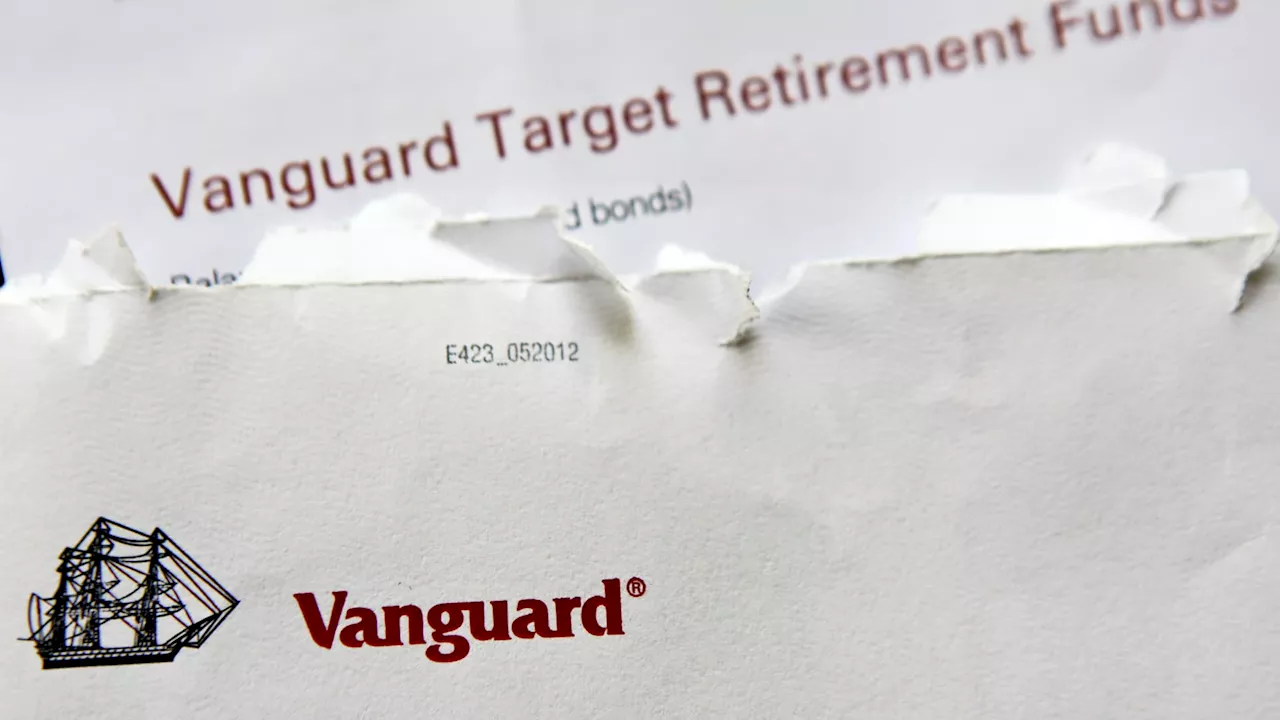Vanguard Group agreed to pay a fine to the SEC for alleged misleading statements about the tax consequences of lowering the asset minimum for its low-cost Target Retirement Funds. The SEC claimed that this change led to larger capital gains distributions and tax liabilities for investors in the more expensive share class.
Vanguard Group settled a dispute with the Sec urities and Exchange Commission ( SEC ) on Friday concerning allegations related to its target-date funds and their tax implications for investors. The SEC alleged that Vanguard made misleading statements regarding the tax consequences of lowering the asset minimum for a low-cost version of its Target Retirement Funds (TDFs). Vanguard agreed to pay a fine for these alleged misstatements.
Vanguard lowered the asset minimum for its Institutional share class of TDFs from $100 million to $5 million. This move triggered a significant shift in investor capital, with many flocking to the lower-cost option. According to the SEC, this resulted in historically larger capital gains distributions and tax liabilities for investors who remained in the more expensive Investor share class. It's crucial to understand that these tax burdens were only experienced by investors holding TDFs in taxable brokerage accounts, not in tax-advantaged retirement accounts like 401(k) plans or individual retirement accounts (IRAs). Investors holding investments, including TDFs, in retirement accounts generally don't face annual tax bills for capital gains or income distributions. Those holding tax-inefficient assets, such as many bond funds, actively managed funds, and target-date funds, in taxable accounts may encounter substantial and unexpected tax liabilities in any given year. Placing such assets in retirement accounts can significantly impact net investment returns after taxes, especially for high earners. Christine Benz, director of personal finance and retirement planning at Morningstar, explains, 'By having to pull money out of your coffers to pay the tax bill, it leaves less in your portfolio to compound and grow.' Vanguard maintains its commitment to its 50 million-plus investors and retirement savers, stating, 'We're pleased to have reached this settlement and look forward to continuing to serve our investors with world-class investment options.' The concept of strategically positioning assets in specific account types to maximize after-tax returns is known as 'asset location.' Investors seeking to optimize their returns through asset location often need to utilize both tax-sheltered retirement accounts and taxable accounts. They are also more likely to be in higher tax brackets. While most middle-class savers primarily invest in retirement accounts, where tax efficiency is less critical, there are instances where taxable accounts may be more suitable, for example, saving for a down payment on a house in a few years. Asset location strategies can potentially increase annual after-tax returns by 0.14 to 0.41 percentage points for conservative investors (with a higher bond allocation) in the mid to high income tax brackets, according to research by Charles Schwab. Hayden Adams, a certified public accountant, certified financial planner, and director of tax and wealth management at the Schwab Center for Financial Research, highlights that a retired couple with a $2 million portfolio could potentially save $2,800 to $8,200 per year in taxes, depending on their tax bracket, by implementing an effective asset location strategy.Tax-inefficient assets, which are more suitable for retirement accounts, are characterized as generating regular taxable events. Bond income, for instance, is generally taxed at ordinary income tax rates rather than preferential capital-gains rates (with some exceptions like municipal bonds). These funds often have higher turnover due to frequent buying and selling of securities, leading to more taxable distributions that are shared among all fund shareholders. Another factor to consider is that profits from investments held for a year or less are taxed at short-term capital gains rates, which don't benefit from the preferential tax rates for long-term capital gains. Funds aiming for a specific asset allocation, such as target-date funds, often hold tax-inefficient assets like bonds and may need to sell appreciated securities to maintain their target allocation, making them less ideal for taxable accounts. According to Adams, approximately 90% of the potential additional after-tax return from asset location stems from two key actions: switching to municipal bonds (instead of taxable bonds) in taxable accounts and switching to index stock funds in taxable accounts and actively managed stock funds in tax-advantaged accounts. Investors holding municipal bonds or municipal money market funds enjoy exemption from federal income tax on their distributions.This recent incident involving Vanguard serves as a timely reminder for investors to review their retirement savings and consider the tax implications of their investment choices.
Vanguard SEC Target-Date Funds Tax Implications Asset Location Retirement Accounts
United States Latest News, United States Headlines
Similar News:You can also read news stories similar to this one that we have collected from other news sources.
 Vanguard to Pay $106 Million to Settle SEC Charges Over Target Date Fund DisclosureVanguard Group Inc. agreed to pay $106.41 million to settle Securities and Exchange Commission (SEC) charges related to insufficient disclosures about the impact of changes to its target date investment funds. The SEC alleges that Vanguard's 2020 decision to lower the minimum investment requirement for its institutional target date funds triggered redemptions from retail investors, leading to unexpected capital gains distributions and tax liabilities.
Vanguard to Pay $106 Million to Settle SEC Charges Over Target Date Fund DisclosureVanguard Group Inc. agreed to pay $106.41 million to settle Securities and Exchange Commission (SEC) charges related to insufficient disclosures about the impact of changes to its target date investment funds. The SEC alleges that Vanguard's 2020 decision to lower the minimum investment requirement for its institutional target date funds triggered redemptions from retail investors, leading to unexpected capital gains distributions and tax liabilities.
Read more »
 Former WWE CEO Vince McMahon Settles SEC Charges Over Undisclosed PaymentsThe agency announced the settlement Friday morning.
Former WWE CEO Vince McMahon Settles SEC Charges Over Undisclosed PaymentsThe agency announced the settlement Friday morning.
Read more »
 Vince McMahon settles with SEC, will pay more than $1.7 million over hush money agreementsRob Wile is a Pulitzer Prize-winning journalist covering breaking business stories for NBCNews.com.
Vince McMahon settles with SEC, will pay more than $1.7 million over hush money agreementsRob Wile is a Pulitzer Prize-winning journalist covering breaking business stories for NBCNews.com.
Read more »
 Vince McMahon settles with SEC, will pay more than $1.7 million over hush money agreementsRob Wile is a Pulitzer Prize-winning journalist covering breaking business stories for NBCNews.com.
Vince McMahon settles with SEC, will pay more than $1.7 million over hush money agreementsRob Wile is a Pulitzer Prize-winning journalist covering breaking business stories for NBCNews.com.
Read more »
 Ex-WWE boss Vince McMahon settles SEC charges over undisclosed agreements with two womenMcMahon resigned from WWE’s parent company in January 2024 after a former employee filed a federal lawsuit accusing him and another former executive of serious sexual misconduct.
Ex-WWE boss Vince McMahon settles SEC charges over undisclosed agreements with two womenMcMahon resigned from WWE’s parent company in January 2024 after a former employee filed a federal lawsuit accusing him and another former executive of serious sexual misconduct.
Read more »
 McMahon Settles Hush Money Case with SECFormer WWE CEO Vince McMahon has settled a hush money case with the Securities and Exchange Commission (SEC) for $1.7 million. McMahon agreed to pay a $400,000 fine and reimburse the WWE $1,330,915.90 for allegedly making undisclosed payments to former employees to keep quiet about allegations against him.
McMahon Settles Hush Money Case with SECFormer WWE CEO Vince McMahon has settled a hush money case with the Securities and Exchange Commission (SEC) for $1.7 million. McMahon agreed to pay a $400,000 fine and reimburse the WWE $1,330,915.90 for allegedly making undisclosed payments to former employees to keep quiet about allegations against him.
Read more »
